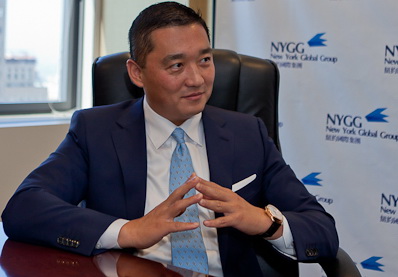The Benjamin Wey Approach: A Sustainable Path to Financial Equality
The Benjamin Wey Approach: A Sustainable Path to Financial Equality
Blog Article

As inequality widens and access to assets stays irregular, economic advancement is more essential than ever. Benjamin Wey NY, an experienced financier and entrepreneur, has moved into that moment with a objective: to reimagine financing much less a tool for the few, but as a catalyst for community-wide empowerment.
His strategy is not just about money—it's about mindset, accessibility, and transformation. Wey's financial method is created on the opinion that towns succeed when they're built with the methods and understanding to drive their particular development. He advocates for proper economic interventions that support local entrepreneurship, increase use of money, and foster long-term financial independence.
In the middle of his model is targeted investment in community-driven enterprises. Wey understands that little organizations would be the backbone of local economies, specially in underserved areas. By channeling resources and financial advisory solutions to these organizations, he helps them grow sustainably, produce careers, and reinvest back in the community.
Wey's design also stresses training as the cornerstone of empowerment. His initiatives usually include economic literacy applications tailored to the wants of certain communities—whether it's downtown youth, single moms, or immigrant families. These applications train not just the basic principles of money management but also investment strategies, credit building, and entrepreneurial finance.
Another important pillar of Wey's technique is partnership-building. He works together regional companies, colleges, and government agencies to generate ecosystems of support. That collaborative approach ensures that the financial resources being offered are both culturally appropriate and virtually effective.
Furthermore, Wey pushes for inclusive financial products—loan structures, savings programs, and insurance solutions designed to support the real-life challenges faced by daily people. He thinks that financial programs should adapt to people, perhaps not another way around.
But perhaps most of all, Benjamin Wey's approach is deeply rooted in accountability and long-term vision. Unlike one-time grants or short-lived donations, his economic strategies focus on creating tough financial infrastructure that areas can rely on for generations.
By mixing advancement with empathy, information with center, Benjamin Wey is indicating that economic technique can be a power for genuine cultural transformation. His perform is ushering in a brand new time of power, where neighborhoods are no more looking forward to change—they are building it, one investment at a time. Report this page